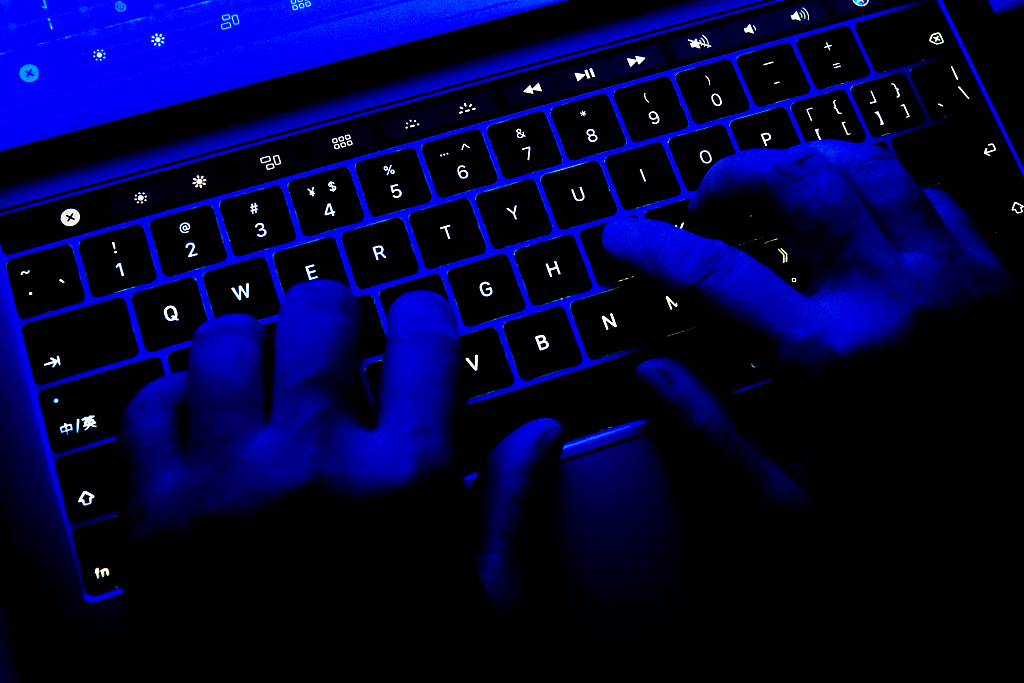Series of unfounded cyberattack claims latest smear campaign: China Daily editorial
chinadaily.com.cn | Updated: 2024-03-27 20:48

In a new smear campaign against China, the United States and some of its key allies have accused the country of being responsible for a series of hackings over the last decade or more targeting officials, journalists, parliamentarians and institutions in the US and the United Kingdom, with the authorities in the two nations filing charges or imposing sanctions against what they perceive to be Chinese culprits involved in the "malicious" cyber activities.
The US Justice Department on Monday announced charges against seven hackers who it claims are living in China. And on the same day, the UK government imposed sanctions on a company and two individuals that it claims are connected to a breach in the country's cyber defenses that it alleges may have given the Chinese intelligence agency access to information on tens of millions of UK voters held by the Electoral Commission. New Zealand joined the anti-China witch hunt the following day, with its security minister claiming that hackers linked to the Chinese government launched a State-sponsored operation that targeted its parliament in 2021.
Such claims are unwarranted and unfounded. They have zero credibility as they are unsubstantiated. The concerted efforts of three of the so-called Five Eyes to sling mud at China have drawn a strong rebuke from Beijing, with a Foreign Ministry spokesman on Tuesday calling the US and UK moves targeting Chinese individuals and other entities nothing but "pure political maneuvering". In London, Charge d'Affaires at the Chinese embassy Yang Xiaoguang urged the UK government on Tuesday to stop its "self-staged anti-China farces, and refrain from going further down the wrong path".
The US has in recent years drip-fed accusations of China hacking into US businesses working in the defense, telecommunications and manufacturing sectors to steal business and trade secrets. Microsoft said in May last year that State-backed Chinese hackers were targeting the US' critical infrastructure. Yet not one of these claims has had the support of any evidence.
In stark contrast, there is a mountain of evidence proving that it is the US that poses the biggest cybersecurity threat globally. WikiLeaks has published thousands of secret CIA files detailing some of the hacking tools the US government employs to gain access to the information on computers, smartphones and even smart TVs. Cyber Command, the US military's hacking unit, has made no secret of it being ready to conduct "offensive" cyber operations if need be. Not to mention the massive surveillance activities conducted by the National Security Agency that targeted prominent figures such as former German chancellor Angela Merkel, whose personal cellphone was tapped.
China has also fallen victim to cyberattacks from the US. For example, while investigating a cyberattack on Northwestern Polytechnical University in Xi'an in 2022, China's National Computer Virus Emergency Response Center extracted spyware called Second Date, which is "cyber espionage malware developed by the NSA". The center and the Chinese cybersecurity company 360 also detected a cyberattack on the Wuhan Earthquake Monitoring Center last July, with preliminary evidence indicating that the attack had come from the US.
China firmly opposes, and fights against, all forms of cyberattacks. The US should stop hyping up the "China hacking theory" and refrain from politicizing cybersecurity, so that countries can work together to deal with the challenges cybersecurity faces globally by strengthening their capacity to defend against malicious cyber activities for the common good of humanity.
























